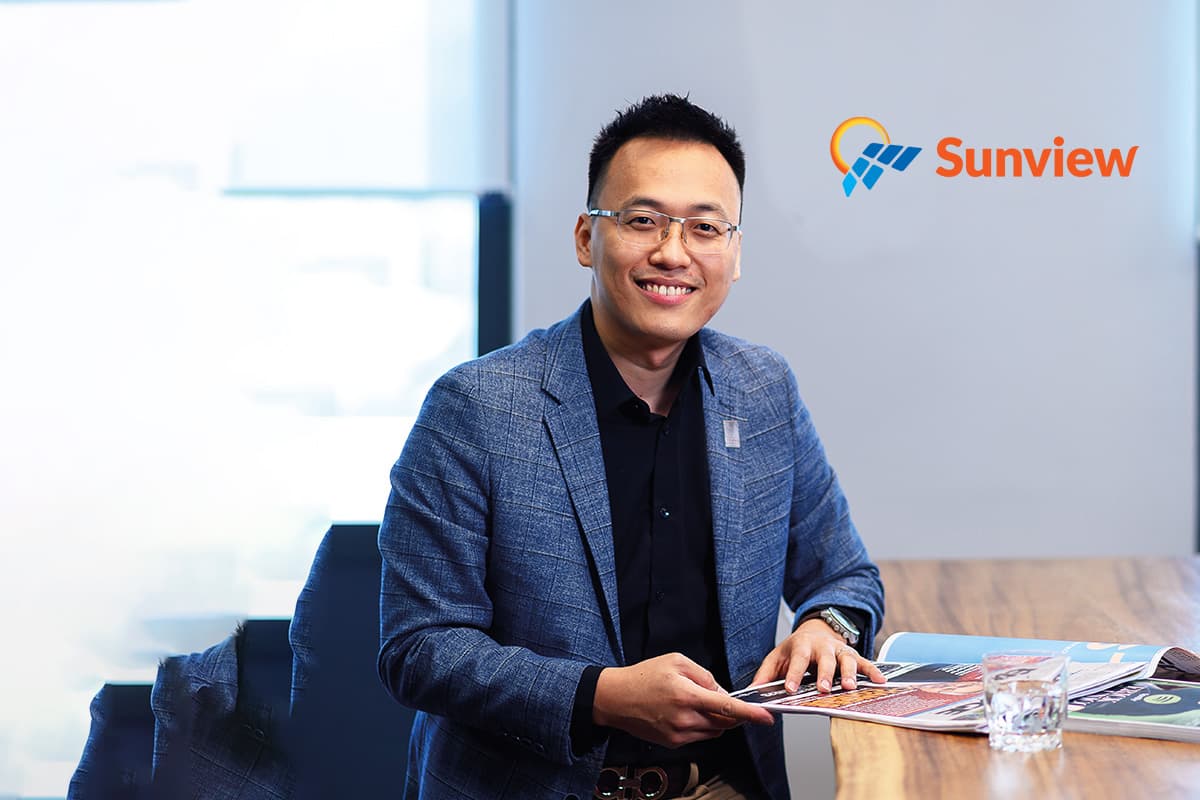

Sunview Group Bhd’s company name may only refer to one source of renewable energy (RE), but the ACE Market-listed entity has ambitious plans to diversify into bioenergy and other sources of RE.
This is necessary to help Malaysia achieve its net zero goal by 2050 and to provide companies with a steady and diverse source of RE. The demand for RE is higher than ever as companies strive to reduce their emissions. For Sunview, going into other sources of RE allows the company to give its clients more options and boost its revenue streams.
“From day one, our mission is to be the largest RE solutions provider in Malaysia. That is why we don’t just focus on solar. We want to venture into other RE resources. Bioenergy is the first area that we are moving into and it is aligned with what we promised in our prospectus during our listing,” says Sunview CEO Ong Hang Ping.
Four months after the company was listed, it jointly acquired 20% of Provectus Bioenergy Sdn Bhd, which generates energy from biogas, as well as three other companies.
This sets Sunview apart from other companies in the competitive solar industry as it aims to be an integrated solutions provider for RE. It can offer clients different RE resources based on their needs.
“Today, you can’t use solar energy at night and you can’t use it to trim your maximum demand. But for bioenergy, you can run it 24/7 theoretically. At the same time, you can be greener because other than using renewable sources, you are also recycling waste,” says Ong.
That’s also why Sunview wants to venture into BESS. The technology can reduce maximum demand. “When both solutions are added together, we can cover every target audience in the different tariff categories by Tenaga Nasional Bhd. We can solve a lot of their problems and make our client base wider.”
Sunview chose bioenergy, which includes biomass and biogas as feedstock for energy production, because Ong believes it has the most potential after solar energy and is a low-hanging fruit. According to the Malaysia Renewable Energy Roadmap (MyRER), there is a 3.6GW resource potential for bioenergy, including from biomass (2.3GW), biogas (736MW) and municipal solid waste (516MW).
About 450 palm oil mills across Malaysia process 95.5 million tonnes of fresh fruit bunches annually on average, and this waste can be used as feedstock for power generation.
Additionally, palm oil mill effluent (POME) is suitable for biogas production and can be used to generate power. An average of 64 million m3 of POME is generated annually, which can generate about 550MW of biogas power in Malaysia. Provectus is generating energy from POME biogas.
Other potential sources of bioenergy are rice husks and straw, as well as wood residue from sawmills.
The MyRER report highlights that an estimated 9.5 million tonnes of waste are generated each year in the form of municipal solid waste. This can be used for power generation through waste-to-energy technologies. However, municipal solid waste is still difficult to secure as a feedstock because the technology for waste separation is not yet available.
But Sunview is not just looking at Malaysia. The potential for bioenergy is also huge in other countries, like Vietnam and Thailand, says Ong.
Learning along the way
Sunview’s strategy for diversification will be through greenfield acquisitions and learning from the experience. From there, it will tender for engineering, procurement, construction and commissioning (EPCC) contracts.
This will allow the company to have more say on the projects while maintaining its profit margins. Biogas projects from POME are one of the main areas of focus for the company due to its potential.
The government is offering incentives for biogas producers under the Feed-in Tariff scheme, which could become a recurring source of income for companies like Sunview.
Solar will remain the company’s main revenue stream, followed by bioenergy. Going forward, Sunview will go into mini-hydropower, wind energy and BESS.
“This year, we will have more activity in terms of diversification. But at our core, we are still an RE company. We will deliver what we have promised,” says Ong.


